Harry's story: The first wave at Sword Beach

Harry was a signaller in the King's Shropshire Light Infantry. Very sadly, he passed away on 17 April 2024, aged 102, not long after sharing his experience of D-Day with us. His memories appear here with the kind permission of his family.
"On the morning of D-Day... actually in your mind it was just like another exercise. You’d done it so often that you just carried on. And then, all of a sudden, I saw the ship next to mine. A big hole appeared in this side of the ship. From then on, I realised this was for real.
"It was caused by a gun battery and we were sent to destroy it, instead of going to Caen. When we got up to near the battery... really you could understand why they placed it where it was. Oh, it was marvellous to see all the ships out in the Channel, but from where the battery was, they could pop them off, there was no doubt about that.
"When the hole came, I didn't hear any noise but a few seconds after, there was big noise. I don't think many survived."
Harry was third to disembark at Sword Beach.
"There were two ramps, one on each side of the ship, and the officer and his batman [assistant] went down as one and two. I was number three and when I stood on it, it broke off.
"The other two, they've got to the bottom, right on the shore. But when I went, the ship turned round because this ramp had dug into the sea bed and, consequently, when it fell off, I went down into the water.
"Somebody who shouldn't have pulled me out. Oh, I wouldn’t have got out [by myself]. You were carrying too much in the way of arms to get out; a lot of ammunition. It was all twisted, knotted. I wouldn't have got out."
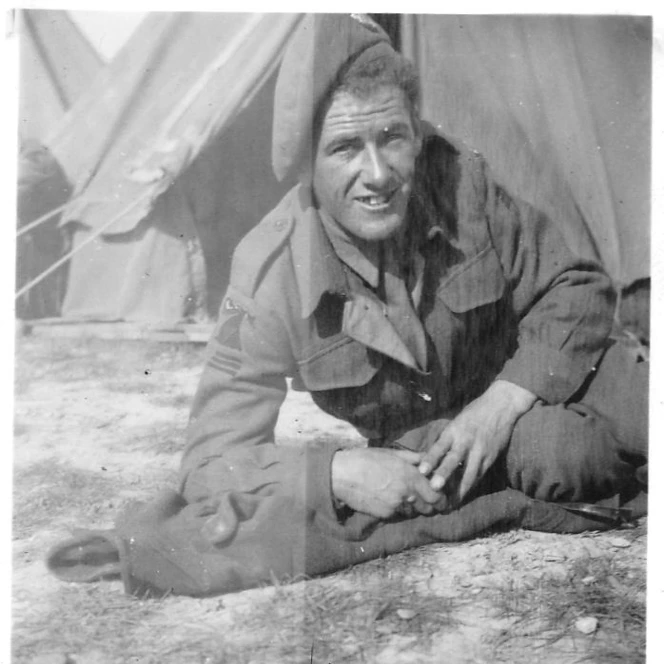
They were in great danger.
"More or less all of us got off the beach unharmed, but then a German tank swept the beach so there were a lot killed. The royal engineers attached to us actually destroyed the two guns that were pointed out to sea. That was the end of that day.
"I was 21. We were all the same age, more or less, so you weren't by yourself... One thing that does stand out in my mind from D-Day was, last thing at night I’d finished digging the slit trench with a comrade and the Colonel came over and said, 'Well done'. The next morning, he was dead."
"You never forget. I can even see some of the faces of my comrades who didn't make it. None of us will ever forget."
Blind veteran
As they advanced to Caen, Harry narrowly escaped enemy fire.
"There was a chateau on the road [to Caen]. We dug in there and I went to use the outside toilet. A German plane swept the yard and there was all the bullets hitting and bouncing off the cobblestones.
"Not one bullet came near me. I thought to myself, 'I'm invincible that I survived that!' I was actually told off afterwards for not firing back.
"We were outside Caen for a month, strafed day and night. Of course, then you realise you're at war and you had to knuckle down and just do what you had to do."
"There were 17,000 that gave their lives. They are the people to remember."
Blind veteran
Remembering Harry
Harry visited Normandy again in February 2024, just weeks before he died. He felt compelled to go and pay his respects to all those who never made it home.
It was a true honour to support Harry. He particularly liked the talking watch we gave him as he could no longer see his old one. He missed being able to read the newspaper so we also gave him a scanner that could read the text aloud to him. He said it was marvellous to be able to read the paper again.
You can donate in memory of Harry here so other blind veterans can receive the same equipment.
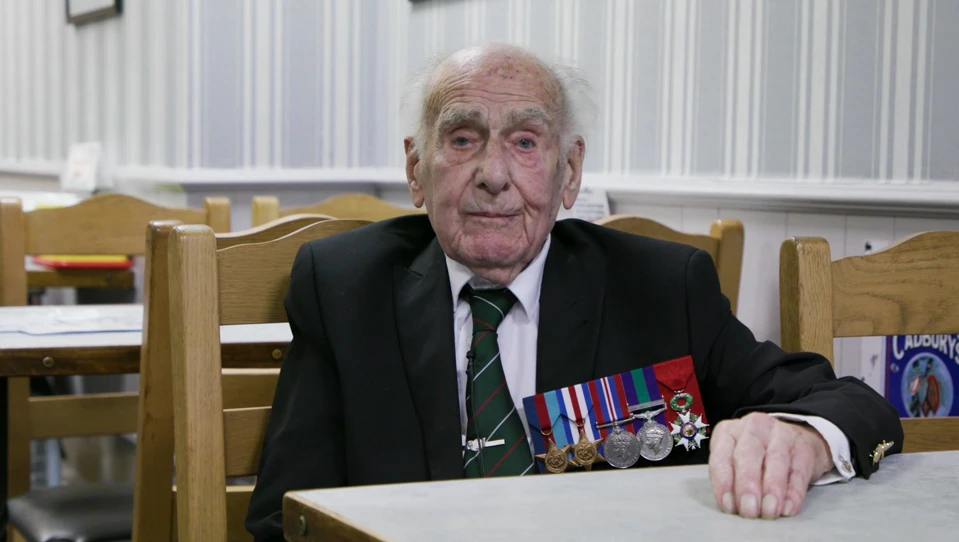
Read more
John's story: Avoiding mines at Gold Beach
With his famous Desert Rats 7th Armoured Division, John drove into France - and saw the horrors of war.
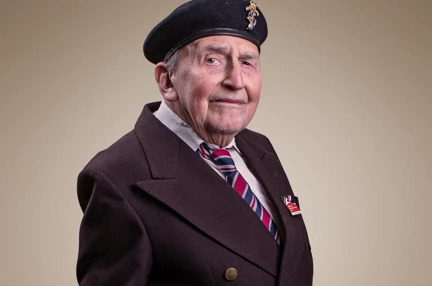
D-Day 80 recollections
Many of our veterans have memories of D-Day, even those who were far too young to fight at the time.
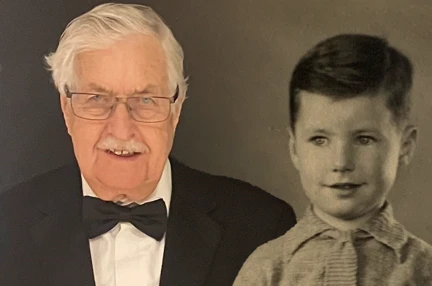
Richard's story: Normandy in a tank
Mechanic Richard joined the tank corps when he was just 18, despite not having a clue what a tank was.
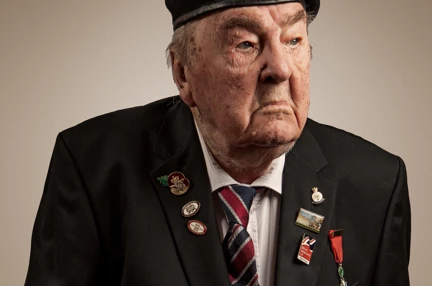
Sign up for email updates
We would love to keep you updated about our activities, services and ways to support us.
You can change your contact preferences at any time by calling us on 0300 111 2233 or emailing us. See our privacy policy for more details.